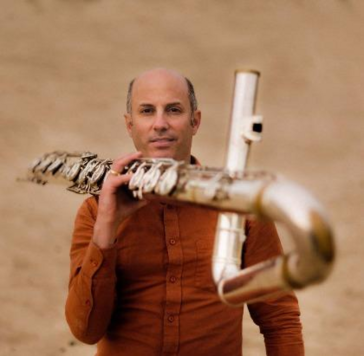Publicatie naar aanleiding van de internationale Master Class van Stadslab European Urban Design Laboratory. Onderwerp was het ontwikkelen van een regionale ruimtelijke strategie voor deze Poolse universiteitsstad. In de publicatie, naast de resultaten van de Master Class, ook essays van Ruud Vreeman, Ewa Kipta en Didier Rebois.
DOCUMENT

For the ‘Rotterdam Project’, a large amount of historical data on patrons of Rotterdam’s main theatres during the ‘long’ 19th century (1773–1914)was collected, digitally registered and statistically analysed. The data was gathered from the theatre archives of the city of Rotterdam and included data on such specifics as ticket sales, repertoire and featured performers. The database holds prosopography information on over 16,000 patrons and almost 15,000registered ticket sales to these patrons. This dataset (https:// doi.org/doi:10.21943/auas.7381127) can be used to make comparisons to the datasets of similarly sized cities in other countries during the same period and for broader re- search on 19th-century cultural history. So far, the data has been mainly applied to empirically test the master narrative of theatre historiography on the social composi- tion of theatre audiences. The analyses based on the data show that this narrative must, for the most part, be rejected.
DOCUMENT

This paper reports on a case study into reciprocal learning in two tutor groups as part of a master's degree programme in special education. Reciprocal learning means that all members of the group, both students and teachers, learn from each other; however, the question is how and to what extent can reciprocal learning take shape, especially in an educational setting where the actors have different responsibilities. Data were gathered using a combination of methods and more than one source (triangulation) and a member check was performed on the whole cohort. The respondents reported that reciprocal learning in the tutor groups can improve the quality of learning for all participants. The extent to which this occurred appeared to be dependent on the expectations they had beforehand or the expectations they developed during the course of the research project. It is reasonable to assume, therefore, that paying explicit attention to reciprocal learning can have positive benefits for the quality of a course.
DOCUMENT
Students in Higher Music Education (HME) are not facilitated to develop both their artistic and academic musical competences. Conservatoires (professional education, or ‘HBO’) traditionally foster the development of musical craftsmanship, while university musicology departments (academic education, or ‘WO’) promote broader perspectives on music’s place in society. All the while, music professionals are increasingly required to combine musical and scholarly knowledge. Indeed, musicianship is more than performance, and musicology more than reflection—a robust musical practice requires people who are versed in both domains. It’s time our education mirrors this blended profession. This proposal entails collaborative projects between a conservatory and a university in two cities where musical performance and musicology equally thrive: Amsterdam (Conservatory and University of Amsterdam) and Utrecht (HKU Utrechts Conservatorium and Utrecht University). Each project will pilot a joint program of study, combining existing modules with newly developed ones. The feasibility of joint degrees will be explored: a combined bachelor’s degree in Amsterdam; and a combined master’s degree in Utrecht. The full innovation process will be translated to a transferable infrastructural model. For 125 students it will fuse praxis-based musical knowledge and skills, practice-led research and academic training. Beyond this, the partners will also use the Comenius funds as a springboard for collaboration between the two cities to enrich their respective BA and MA programs. In the end, the programme will diversify the educational possibilities for students of music in the Netherlands, and thereby increase their professional opportunities in today’s job market.

Development of European Curriculum and multiple degree Master programme in the field of sustainable outdoor hospitality management.
My research investigates the concept of permacomputing, a blend of the words permaculture and computing, as a potential field of convergence of technology, arts, environmental research and activism, and as a subject of future school curricula in art and design. This concept originated in online subcultures, and is currently restricted to creative coding communities. I study in what way permacomputing principles may be used to redefine how art and design education is taught. More generally, I want to research the potential of permacomputing as a critical, sustainable, and practical alternative to the way digital technology is being taught in art education, where students mostly rely on tools and techniques geared towards maximising productivity and mass consumption. This situation is at odds with goals for sustainable production and consumption. I want to research to what degree the concept of permacomputing can be broadened and applied to critically revised, sustainable ways of making computing part of art and design education and professional practice. This research will be embedded in the design curriculum of Willem de Kooning Academy, focused on redefining the role of artists and designers to contribute to future modes of sustainable organisation and production. It is aligned with Rotterdam University of Applied Sciences sectorplan masters VH, in particular managing and directing sustainable transitions. This research builds upon twenty years of experience in the creative industries. It is an attempt to generalise, consolidate, and structure methods and practices for sustainable art and design production experimented with while I was course director of a master programme at WdKA. Throughout the research I will be exchanging with peers and confirmed interested parties, a.o.: Het Nieuwe Instituut (NL), RUAS Creating 010 kenniscentrum (NL), Bergen Centre for Electronic Arts (NO), Mikrolabs (NO), Varia (NL), Media Arts department at RHU (UK), Media Studies at UvA (NL).